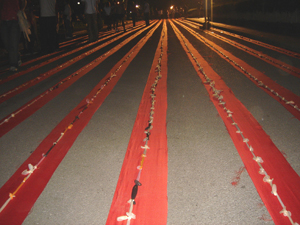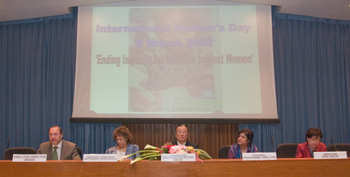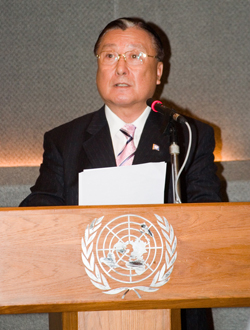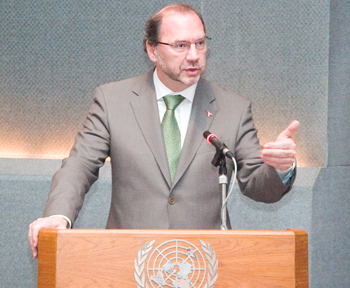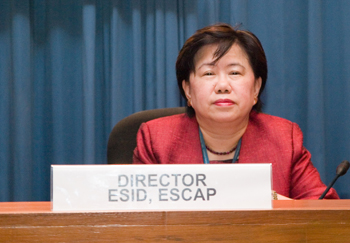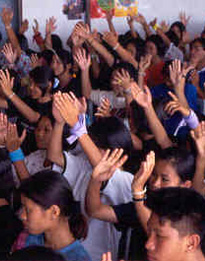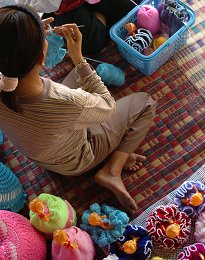Delegates are gathering in Thailand’s capital this week for the 20th international conference on harm reduction running from 20 to 23 April. Organized by the International Harm Reduction Association (IHRA), the conference’s theme is human rights, underscoring the necessity of injecting drug users’ universal access to HIV prevention, treatment, care and support including comprehensive harm reduction programmes.
The four-day event will provide the harm reduction community with the opportunity to share ideas, research and best practices to further advocate for the inclusion of harm reduction in national drug – and AIDS – programmes.
The thematic link between harm reduction and human rights points to the growing understanding that drug users’ impeded access to the full harm reduction package, including clean needles and syringes, substitution therapy, condoms, HIV testing and counselling, infringes upon an individual’s right to highest attainable standard of physical and mental health, without discrimination of any kind.
Laws criminalizing the possession of injecting equipment or substitution therapy are major barriers in responding to HIV, as the fear of criminal measures and prosecution force many drug users underground.
“One of the most significant steps forward we can make to universal access to HIV prevention, treatment, care and support is to stop criminalizing use of needle exchange, methadone treatment and other substitution therapies,” said UNAIDS Executive Director, Michel Sidibé.
Lack of official support for harm reduction in many countries, laws that prohibit key components of harm reduction, and onerous regulatory schemes (e.g. strict import limits on opiate maintenance medications) often make it difficult to implement harm reduction initiatives at all, much less bring such programmes to scale.
Substitution therapy with methadone is available in only 52 countries, and with buprenorphine in only 32 countries. Substitution therapy is largely unavailable in Eastern Europe and Central Asia, where injecting drug use represents the most important mode of HIV transmission.
Important but uneven advances in access to harm reduction
Studies have consistently demonstrated that harm reduction services reduces HIV infections and risk behaviours without contributing to increased drug use or increasing other harms in the communities in which such programmes operate.
Experience in diverse regions has demonstrated the feasibility of bringing harm-reduction programmes to scale, even in the face of official resistance. Common features of high-coverage programmes for injecting drug users include involvement of community organizations, work with law enforcement agencies to minimize harassment, adequate and sustained funding, ease of access for clients, and involvement of injecting drug users in advisory bodies and other appropriate structures.
Recent years have seen important but uneven advances in access to harm reduction in various settings. China, for example, has expanded key components of harm reduction, reaching more than 88 000 individuals with methadone maintenance therapy, and by the end of 2008, establishing 1109 needle exchange programmes in 27 provinces. Viet Nam initiated its first pilot project of methadone substitution therapy in 2008, and harm reduction programmes in the country distributed 15 million condoms and 7.5 million needles and syringes in the first 10 months of 2007. In 2006, Bulgaria, Estonia, Finland, Latvia, and Lithuania created a regional network to expand and coordinate HIV prevention services for injecting drug users, with financing secured until 2009 from the European Commission. In Thailand, by contrast, a recent report by civil society informants found little expansion of harm reduction programmes, despite the national government’s widely publicized 2004 commitment to increase prevention access for drug users.
Aggressive drug control policies often inhibit use of harm-reduction programmes, underscoring the need for inter-ministerial collaboration between Ministries of Health, Interior and Justice and sensitization of law enforcement personnel, to avoid approaches that can deter participation in prevention programmes.
In most countries in Eastern Europe and Central Asia, for example, police sometimes make arrests for possession of extremely small amounts of narcotics, potentially discouraging drug users from participating in needle exchange projects. According to Georgia’s official report to UNAIDS on UNGASS indicators, the national anti-drug policy climate has inhibited efforts to offer even minimal access to detoxification and drug rehabilitation services. In Thailand in 2003, the alleged extrajudicial killings and associated violence, which resulted in the death of more than 2000 suspected drug dealers and users, continues to reverberate through society. Civil society informants report that injecting drug users are afraid to access harm reduction and other health services.
In contrast to the overwhelmingly beneficial effects of harm reduction, law enforcement approaches alone do little to reduce drug use and drug-related crime and are often associated with serious human rights abuses and poor health outcomes for people who use drugs.
When law enforcement and public health efforts come together, the outcomes are very successful. For example in Britain and Australia where drug action teams and police focus on crime fighting and successfully refer drug users to health and welfare services. In Australia, the return on investment of a decade of needle and syringe programmes was estimated at one and half billion US dollars. Furthermore, the Supreme Court in Indonesia ruled that drug users should not be sent to prison; instead they should have access to treatment.
The global drug problem is complex and cannot be solved in isolation. A coming together of organizations working on drug control and AIDS is urgently needed. HIV and injecting drug use are two epidemics but need a combined strategy.








